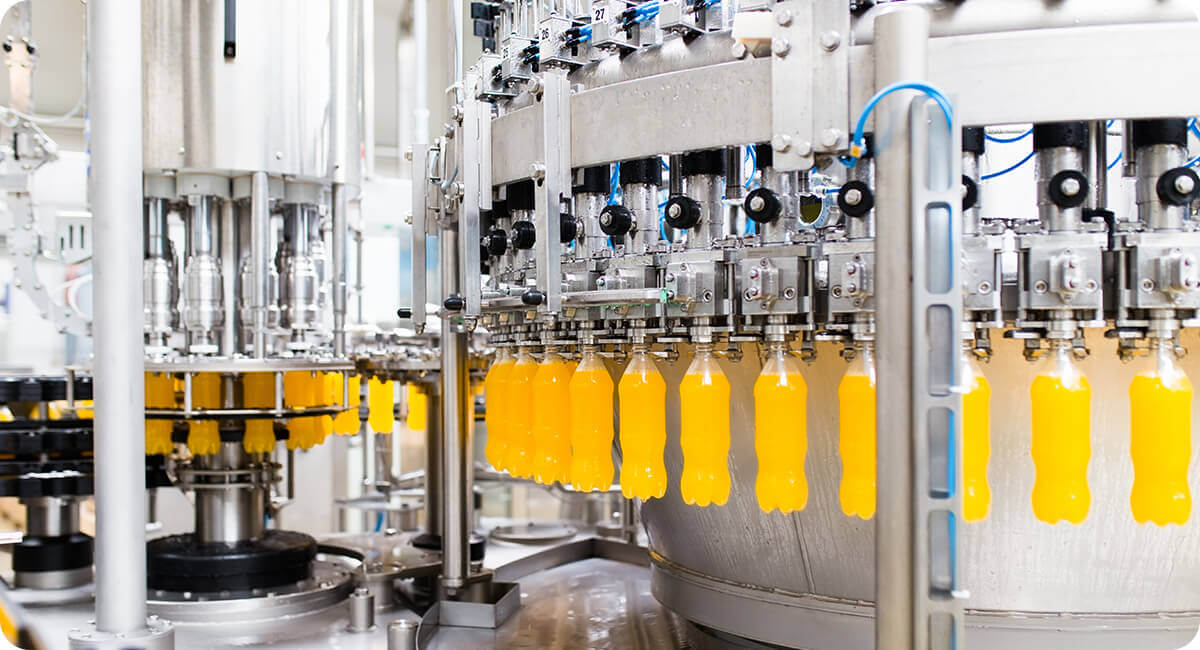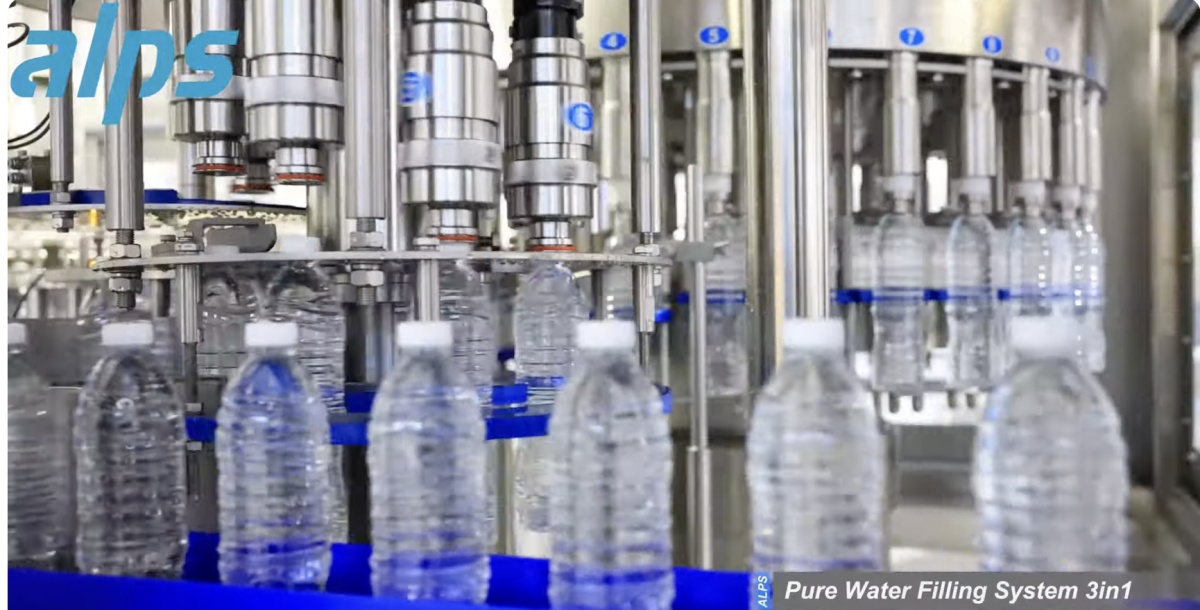Advanced Liquid Package Solution
In today’s competitive beverage industry, the ability to consistently produce safe, high-quality, and well-packaged drinks is critical to a brand’s reputation and long-term success. At the center of this operation lies the beverage filling machine—the core equipment responsible for efficiently and accurately dispensing liquid into containers under strict hygiene and production standards.
Liquid beverage filling machines are one of our core products at Alps Machine. We are committed to being the world’s most competitive supplier of advanced liquid packaging solutions. Our systems are designed for high performance, safety, energy efficiency, and flexibility, with quick customization and fast support services. Whether you're bottling water, juice, soft drinks, milk-based beverages, beer, edible oils, sauces, or household chemicals, filling precision and equipment reliability are non-negotiable.
With such high demands placed on these machines, routine maintenance becomes not just a technical requirement—but a strategic business priority. In this article, we explore why beverage filling machine maintenance is essential, what risks are associated with neglect, and how businesses can ensure optimal performance and long-term value from their equipment.

A beverage filling machine plays a vital role in the production line by:
Filling containers (bottles, cans, or pouches) with precise liquid volumes
Capping or sealing the containers to preserve freshness and prevent leakage
In some systems, also performing rinsing or sterilization to meet hygiene standards
These functions apply across a wide range of beverages and liquid products, including:
Drinks & Beverages: Bottled water, fruit juice, carbonated drinks, energy drinks, milk-based drinks, coffee
Alcoholic Beverages: Beer, red wine, champagne, vodka, fruit wines, whisky
Edible Oils & Condiments: Cooking oil, lube oil, honey, vinegar, soy sauce, ketchup
Household Chemicals: Shampoo, detergent, cleaning liquids, hand wash
Given their multi-stage functionality and broad product applications, keeping filling machines in optimal condition is fundamental to consistent output, regulatory compliance, and brand image.
Neglecting regular maintenance of a beverage filling machine can have serious consequences that ripple across production and the bottom line:
A poorly maintained machine is more prone to unexpected breakdowns, which can halt an entire production line. Even a few hours of downtime can result in missed orders, late shipments, and wasted materials.
Worn-out components, dirty valves, or misaligned nozzles can cause underfilling or overfilling—both of which are costly. Underfilled bottles can result in regulatory violations or customer complaints, while overfilling leads to product waste and increased costs.
In the food and beverage industry, hygiene is everything. A failure to sanitize or inspect critical parts of the filling machine can lead to bacterial contamination, product spoilage, and severe brand damage.
Emergency repairs are typically more expensive than planned maintenance, especially if they involve downtime, technician travel, or urgent spare part procurement.
Without regular servicing, even the most advanced machines will deteriorate quickly, shortening their service life and reducing return on investment (ROI).
Nozzle Cleaning: Remove residual liquids and sediment from filling nozzles to prevent clogging.
Leak Detection: Visually inspect seals and joints for signs of wear or leaks.
Lubrication: Ensure all moving parts such as conveyor gears and capping heads are properly lubricated.
Sensor and Actuator Testing: Ensure sensors, weighing units, and other automated systems are calibrated correctly.
Cleaning of Valves and Piping: Flush out buildup, especially in lines handling viscous liquids or sugary beverages.
Check for Loose Components: Tighten any bolts, clamps, or fasteners that may have loosened during operation.
Seal and Gasket Replacement: Prevent air or liquid leaks by replacing these at regular intervals.
PLC/Control System Diagnostics: Check for software or firmware updates, and ensure alarm and monitoring systems are functioning.
Pump and Motor Inspection: Test performance under full load conditions and monitor for unusual noises or vibrations.
Investing in a well-structured maintenance routine delivers tangible benefits across your entire production operation:
A clean, well-calibrated filling machine ensures every bottle contains exactly what it should—enhancing consumer trust and regulatory compliance.
With fewer breakdowns and more consistent cycle times, your production line runs smoothly with higher overall output.
Preventative maintenance reduces the likelihood of major repairs and downtime, ultimately cutting down on emergency technician fees and replacement part costs.
Just like a car or industrial press, a beverage filling machine that receives regular care will last longer and deliver better long-term value.
Maintained machines are safer to operate and easier to keep within hygiene and safety regulations—a critical aspect of food and chemical industries.
Having a state-of-the-art machine is only half the equation. Ensuring your staff is trained in basic maintenance tasks and troubleshooting is equally important.
Operator Training: Empower your production team with knowledge on how to spot early warning signs, perform basic cleaning, and respond to alerts.
Manufacturer Support: A reliable supplier like Alps Machine offers comprehensive support, including maintenance schedules, spare parts, system upgrades, and remote diagnostics.
Design for Maintenance: Choose filling machines with easy-access design, tool-less disassembly, and built-in sensors for predictive maintenance.

Maintenance is not just a technical necessity—it’s a strategic pillar of successful beverage production. A clean, efficient, and well-maintained beverage filling machine ensures product consistency, safety, operational uptime, and brand credibility. From water and juice to oil and household chemicals, the stakes are high when it comes to delivering precision-filled, hygienic, and sealed products.
Make maintenance part of your operational culture, invest in training, and follow a structured schedule tailored to your machine’s usage and workload. This approach will prevent costly failures, extend your machine’s lifespan, and improve your production ROI.
Alps Machine is committed to helping customers achieve these goals. We not only supply advanced beverage filling machines designed for a wide range of liquid products, but also provide ongoing support, intelligent automation, and customizable maintenance solutions. With our machines, you gain access to safe, energy-efficient, and high-speed performance—backed by reliable service and long-term partnership.

By continuing to use the site you agree to our privacy policy Terms and Conditions.